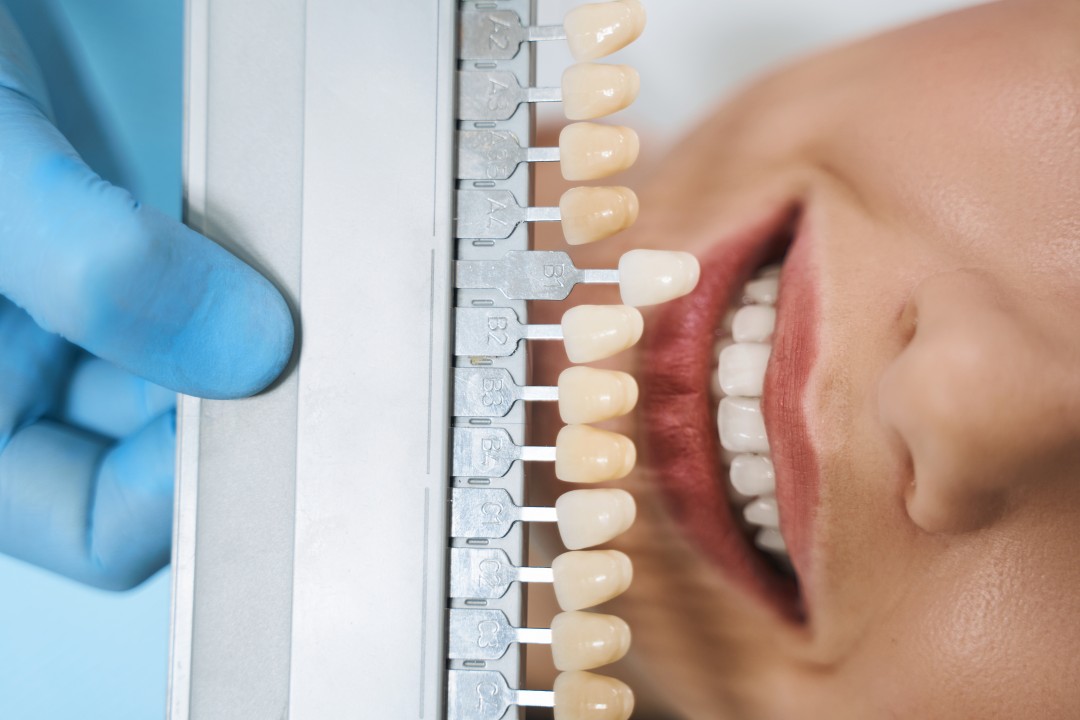
A pretty smile features white and shiny teeth. Not only does it look good but it boosts the confidence of a person and spreads positive vibes in the surroundings. On the other hand, an unattractive smile is often a result of discolored, yellowish, or stained teeth. It usually leads to embarrassing moments and a significant decrease in confidence levels. One needs to understand the solemnity of this condition and should take appropriate action quickly by consulting with specialists in teeth whitening in Mississauga.
In this guide, we will discuss a common dental concern that is associated with an unattractive and unpleasant smile i.e. teeth discoloration. It involves a noticeable change in the color or complexion of your teeth, which may appear yellowed, less bright, or develop white or dark flecks. Let’s delve into this common dental condition, its causes, and ways to prevent it.
What is Tooth Discoloration?
The term “tooth discoloration” describes yellowish, stained, or darkened teeth. This is not a serious illness but may have a severe impact on your personal life. There are numerous possible causes for this common dental condition. While certain factors are unavoidable like aging, trauma, or disease, smoking, and poor dental hygiene are other causes that one can avoid. Fortunately, today’s advanced dentistry has effective solutions for this. Professional teeth whitening, at-home whitening, dental bonding, and others are some options individuals can look for,
Types of Discoloration on Teeth
Primarily, there are two types of tooth discoloration including:
- Extrinsic Discoloration: This kind of discoloration harms the enamel, which is the outermost layer of your teeth. It’s mainly caused by external factors, such as the consumption of certain foods and drinks.
- Intrinsic Discoloration: Starts developing inside the tooth, this kind of discoloration affects the dentin, which is a layer beneath the enamel. Dental injuries and specific drugs are among the major causes of this condition.
Common Causes of Discolored Teeth
Tooth discoloration can result from several factors, both avoidable and unavoidable. Here are the common causes:
Avoidable Causes
- Dark-colored foods and beverages
- Smoking and tobacco use
- Poor oral hygiene
- Excessive fluoride
Unavoidable Causes
- Genetics
- Dental trauma
- Aging
- Diseases
- Medications
Treatments for Discolored Teeth
Dentists use various treatments based on the cause and whether the stains affect the outer or inner layers of the teeth. Some of the most commonly recommended professional teeth whitening treatments are:
Teeth Whitening/ Teeth Bleaching
Teeth bleaching is usually performed at dental offices by professional teeth whitening specialists or by patients themselves at home. These treatments include substances like hydrogen peroxide or carbamide peroxide which breaks down stains and removes them off your teeth. In-office procedures take up to one hour while the daily administration of the home-based whitening methods may require weeks to achieve the desired results. For the best, safest, and quickest results, dentists often recommend professional teeth bleaching instead of at-home teeth whitening solutions.
Dental Bonding
Dental bonding may be considered for severe tooth discoloration that teeth bleaching may not treat. In this dental procedure, dentists use tooth-colored composite resin to mask discolored tooth surfaces. This procedure is also used to fix chipped teeth. Generally, dental bonding-based teeth whitening cost is quite competitive. However, it is important to keep in mind that it might necessitate touch-ups every 5-7 years once they wear out.
Porcelain Veneers
Porcelain veneers are thin shells made of ceramic materials. They mimic the color of natural teeth and are bonded to the front surfaces of teeth to hide any form of discoloration or other types of cosmetic defects found on them. Because they are durable and can stay in optimal condition for up to 15 years, porcelain veneers are an ideal treatment option for those seeking permanent or long-term solutions.
Dental Crowns
Dental crowns may be an option if cavities are present together with discoloration. A crown is a tooth-like cap that aims to eliminate cavities, prevent further damage, and enhance dental appearance as well. Patients with severe decay or discoloration can benefit from this professional teeth whitening procedure.
Prevention Tips
With foods and beverages leaving their particles on your teeth’ enamel daily, teeth discoloration happens every single day. However, you can avoid this by following good oral care practices daily. Below are the best dental care practices to follow:
- Brush regularly (twice a day, recommended by dentists)
- Floss daily
- Limit staining foods and drinks (including coffee and tea)
- Stay hydrated
- Quit smoking and consumption of alcohol
- Visit your dentist so often to get your entire mouth checked up
When to Call the Dentist
From an oral health perspective, tooth discoloration frequently conveys a dental aesthetic problem and may not need to be addressed. However, if combined with pain, bad breath, or bleeding gums, you may be required to make an appointment with a specialist in teeth whitening in Mississauga right away. You may also get in touch with us for the best and fastest possible treatment. In case, you need whiter teeth for a dental aesthetic purpose, feel free to consult. Our experts will guide you to the right solution.
Lastly, knowing the reasons behind tooth discoloration and how to prevent it will help you keep your smile radiant and healthy. You can considerably decrease the risk of discoloration by maintaining good oral hygiene, consuming foods and beverages with caution, and refraining from smoke.
